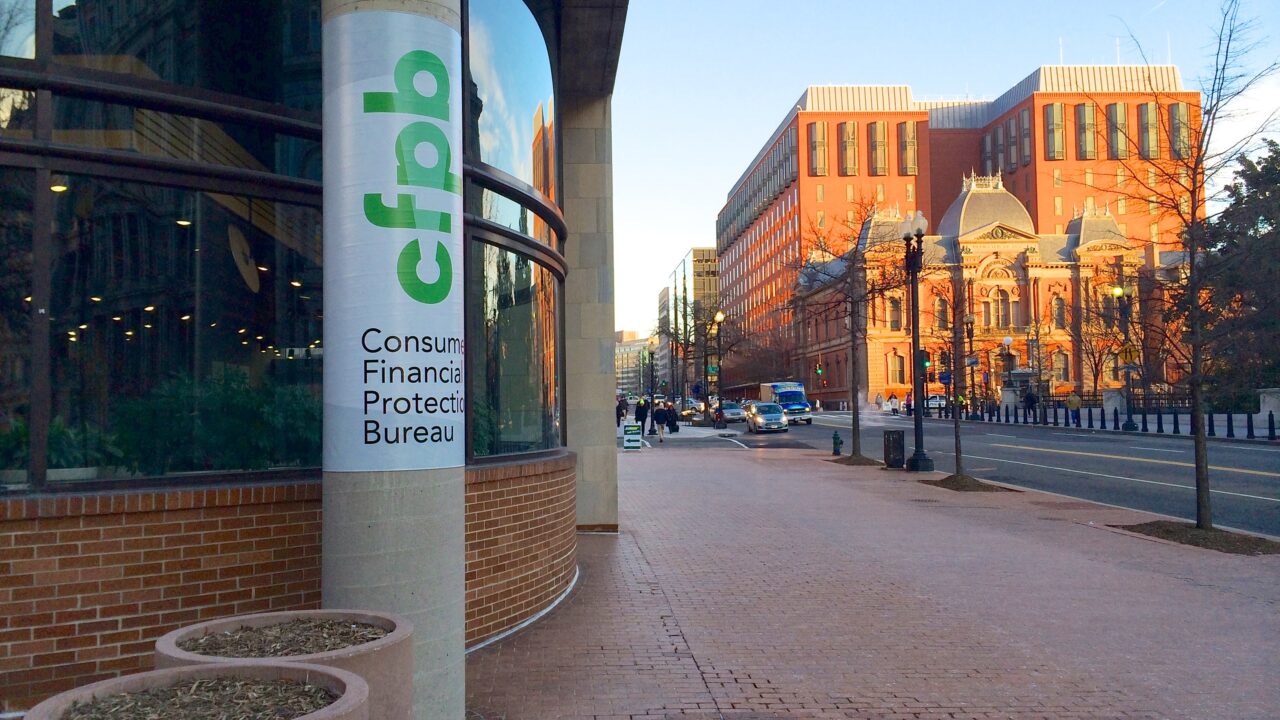 cfpb 36794 by Ted Eytan is licensed under CC BY-SA 2.0
cfpb 36794 by Ted Eytan is licensed under CC BY-SA 2.0
Without any direction from Congress, the Consumer Financial Protection Bureau (CFPB) finalized a rule that (1) changes the safe harbor dollar amount for late fees from $30, or $41 for subsequent late payment violations, to a strict threshold of $8 while prohibiting any higher amount for future delinquencies; and (2) removes the safe harbor late fee adjustment to account for inflation.
Eighty-two percent of American adults own at least one credit card. Restraining lenders from being able to charge late fees that are commensurate with the level of delinquency could drastically reduce the availability of credit. It may also incentivize borrowers to neglect their payments, which results in financial institutions increasing loan loss reserves. This is abundantly clear considering the Federal Reserve found that in the fourth quarter of 2023, credit card delinquency rates were the highest on record. Nearly “3.5% of card balances were at least 30 days past due as of the end of December.”
The Biden administration’s campaign to wipe out “junk fees” is misleading and only further entrenches the federal government’s foothold in the private sector. Credit card late fees, among various other fees, are under assault. “Junk fees” are “junk” in name only. These are lawful fees. The executive branch wants to use the smoke and mirrors of pleasantly sounding terminology to hide the fact that this is just another way for unelected bureaucrats to determine how companies should operate. Without the late fee income to cover expenses, services such as offering revolving lines of credit on a credit card transaction or providing customer service to borrowers could be severely reduced if not eliminated altogether.
This affords the CFPB a significant foothold to directly dictate credit card late fees. The rule is a massive expansion of government power.
The rule’s lack of clear authority from Congress and its failure to produce a thorough economic analysis to “cogently explain why it has exercised its discretion in a given manner” could violate the Administrative Procedure Act (APA) and be deemed arbitrary and capricious. The rule also likely fails the major questions doctrine, especially in the wake of the seminal ruling in West Virginia v. EPA.
Consequently, Rep. Andy Barr (R-Ky.) and Sen. Tim Scott (R-S.C.) introduced joint resolutions of disapproval pursuant to the Congressional Review Act (CRA). If either of the resolutions is signed into law, the CFPB’s credit card late fee rule would be nullified, and the CFPB would be prohibited from publishing a substantially similar rule in the future.
ATR believes Congress is right to use its powers under the CRA to repeal the arbitrary proposal.
ATR strongly supports H.J. Res. 122 and S.J. Res. 70.

